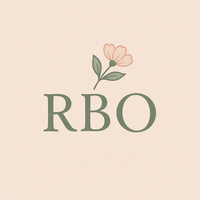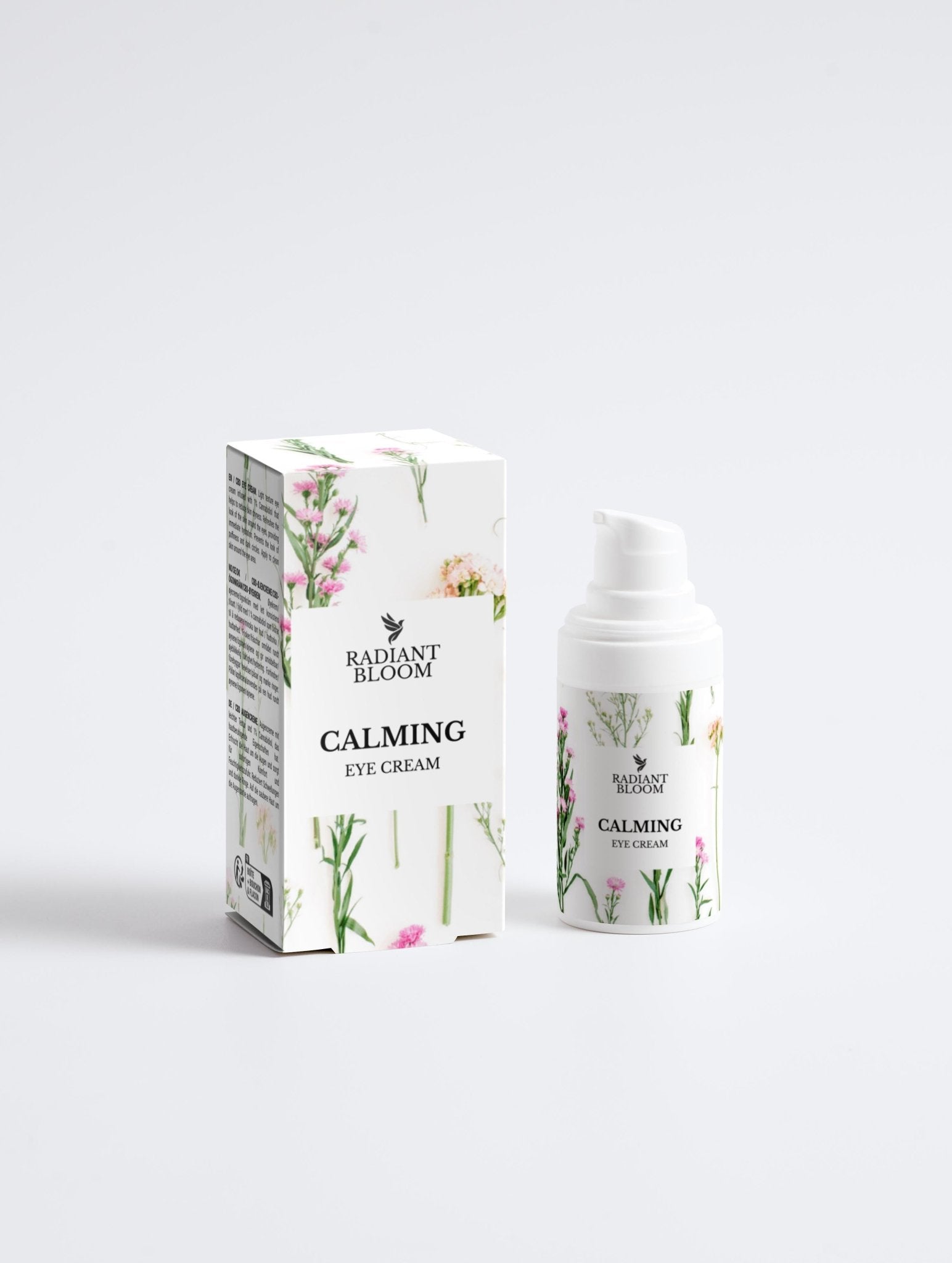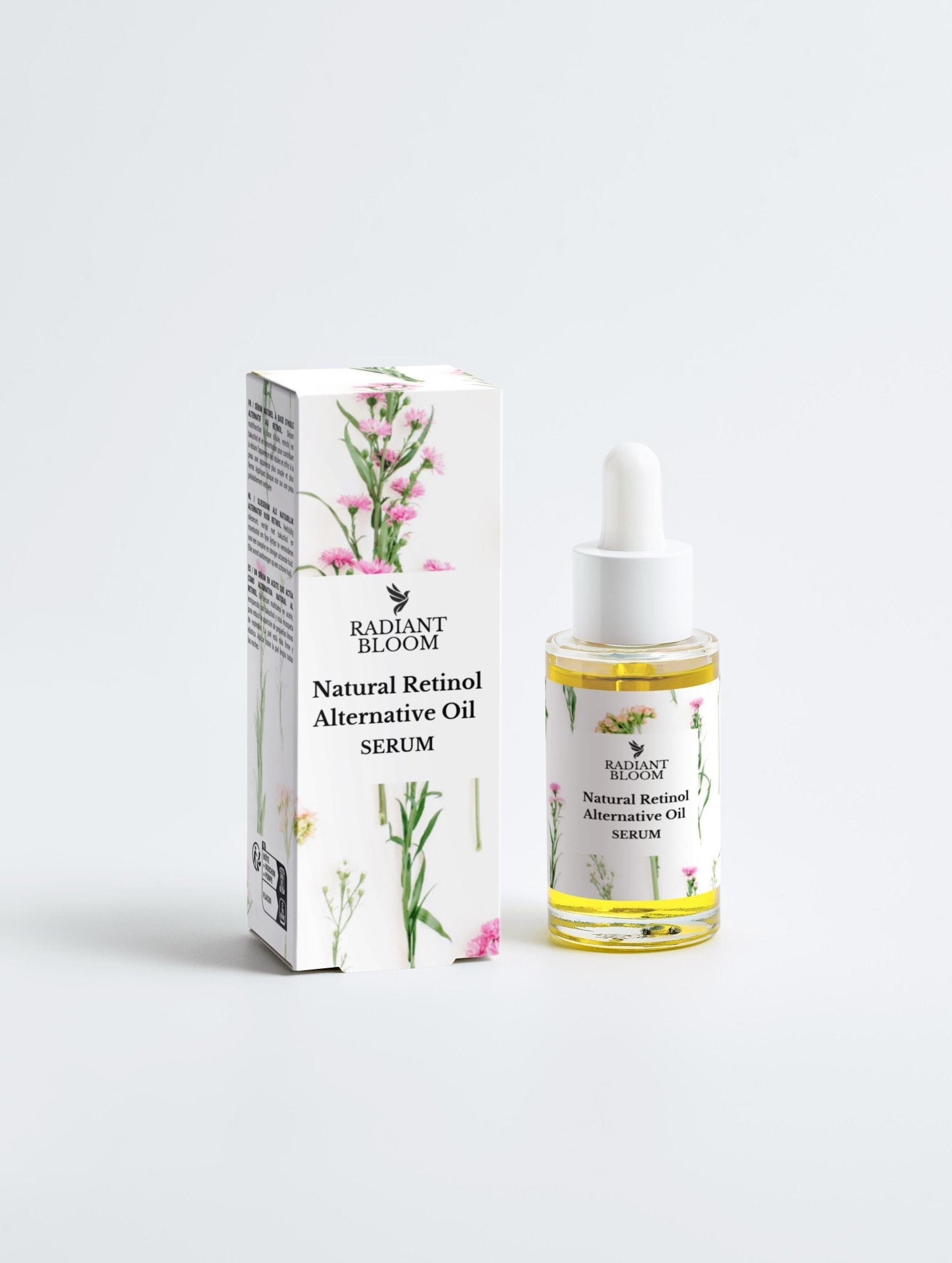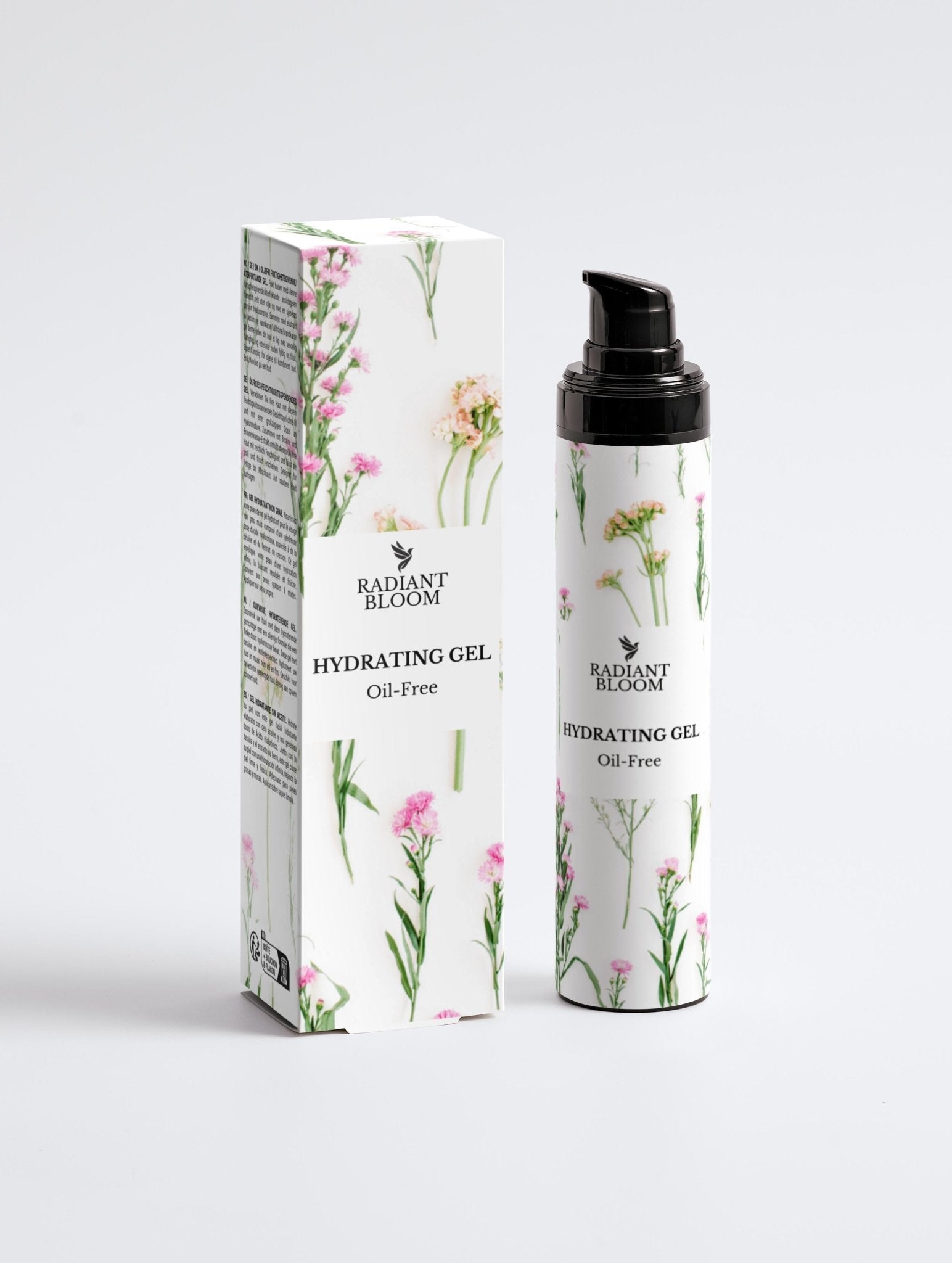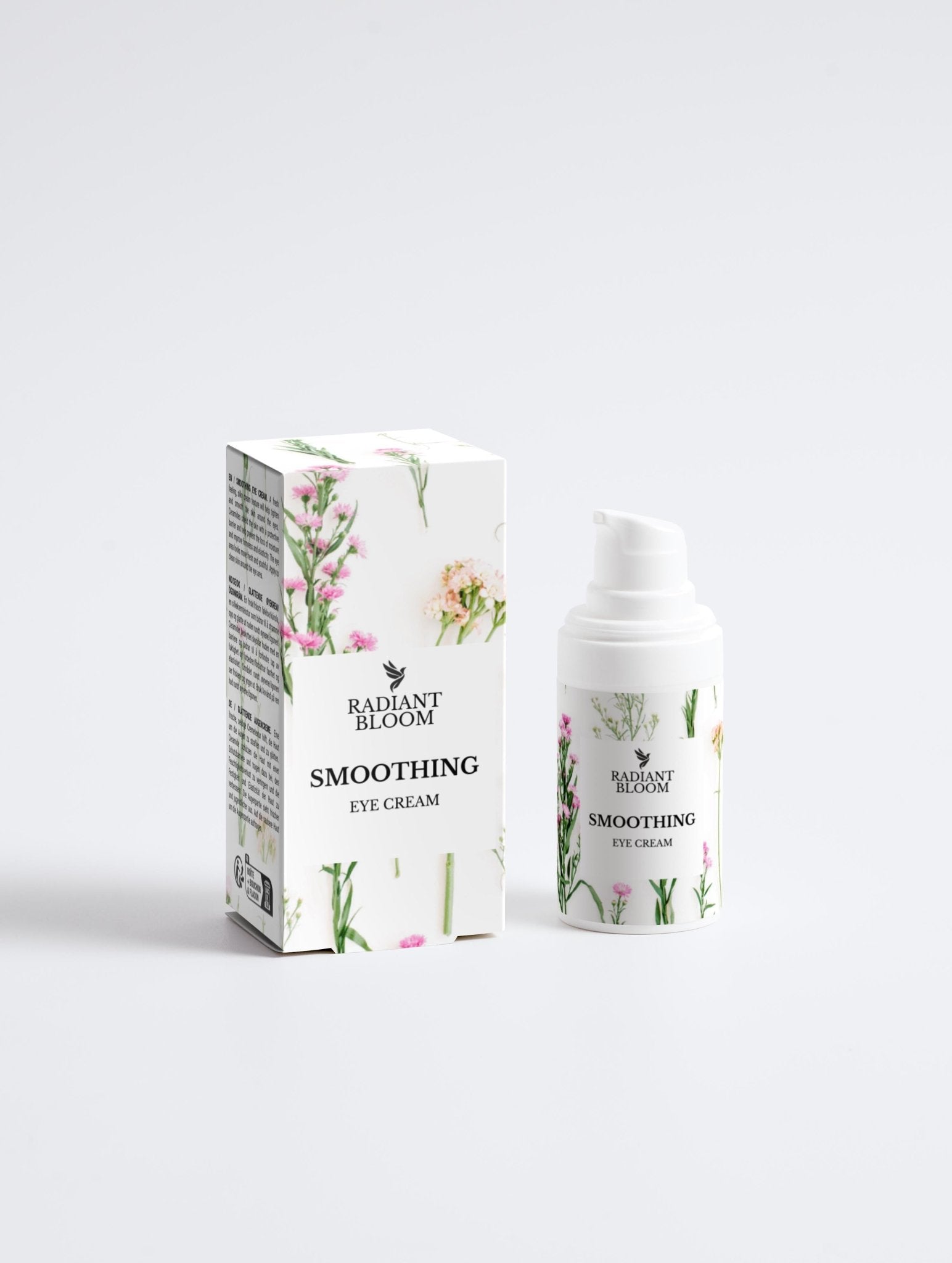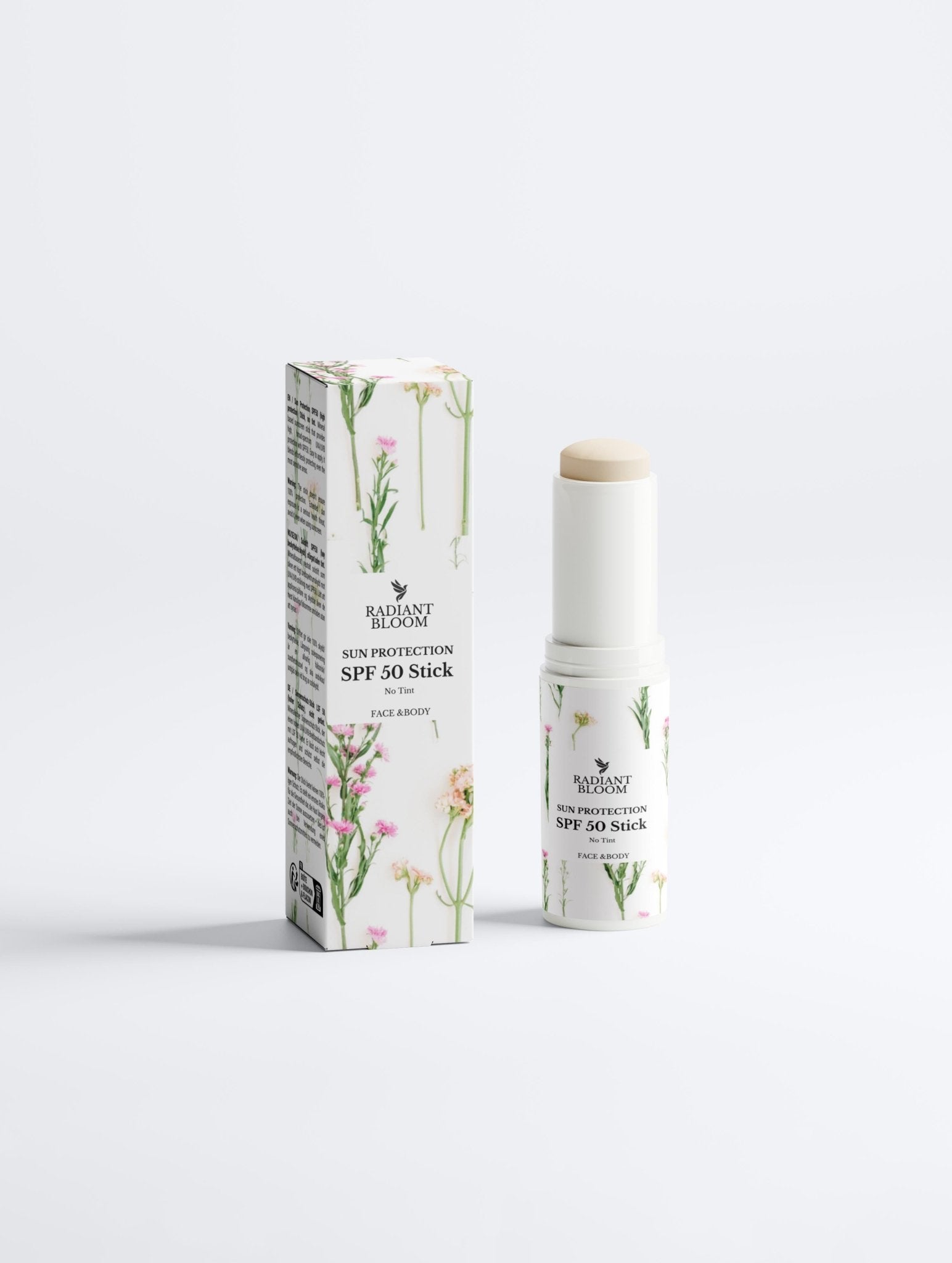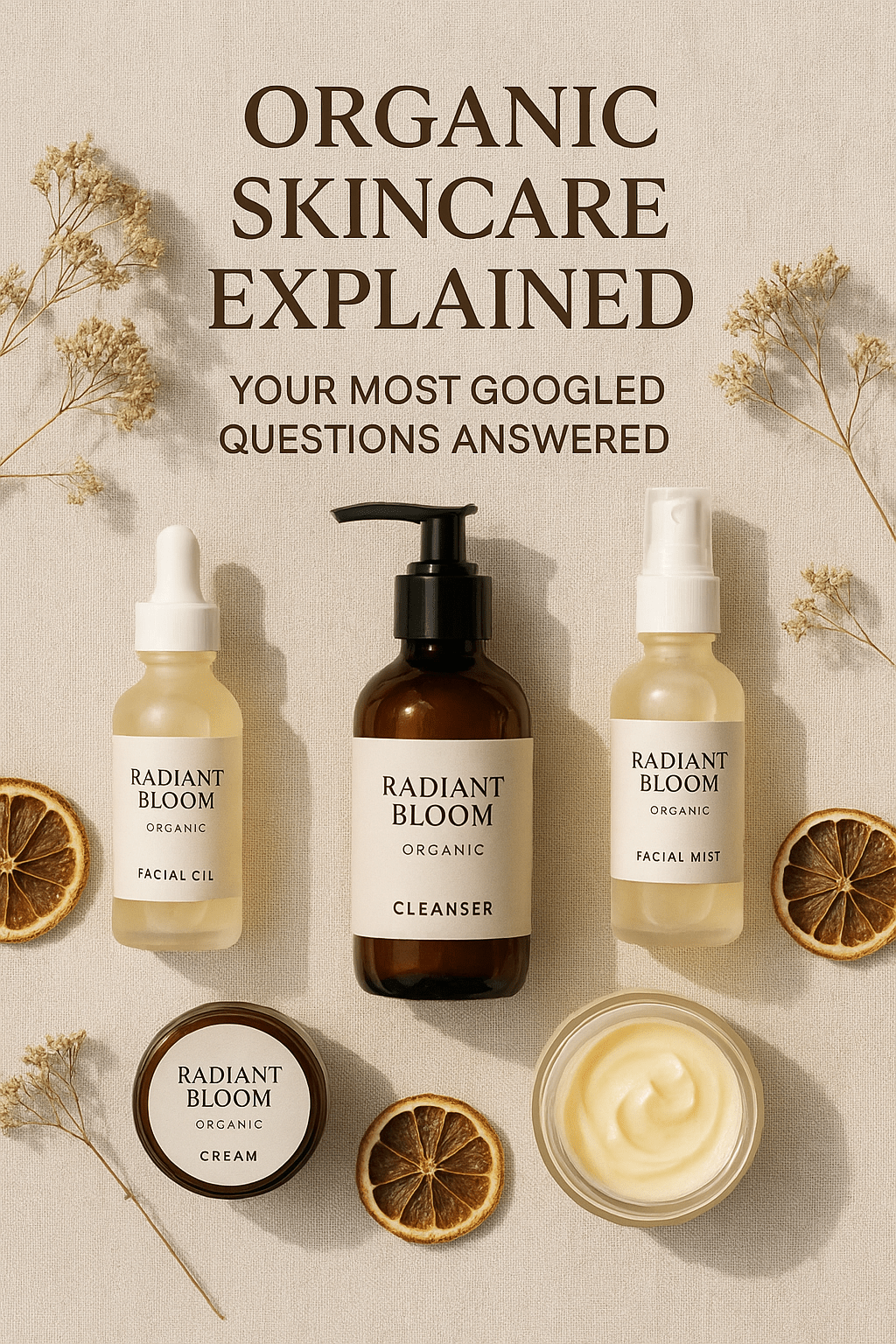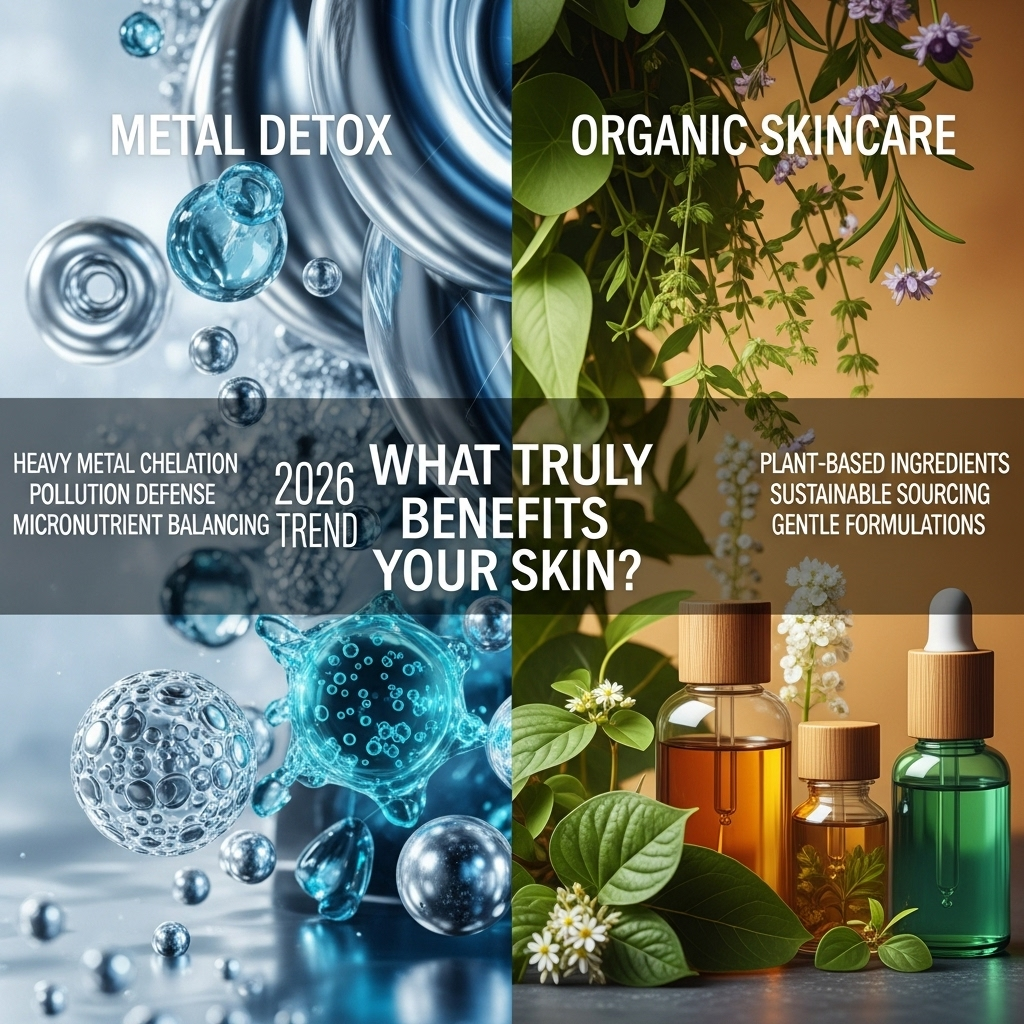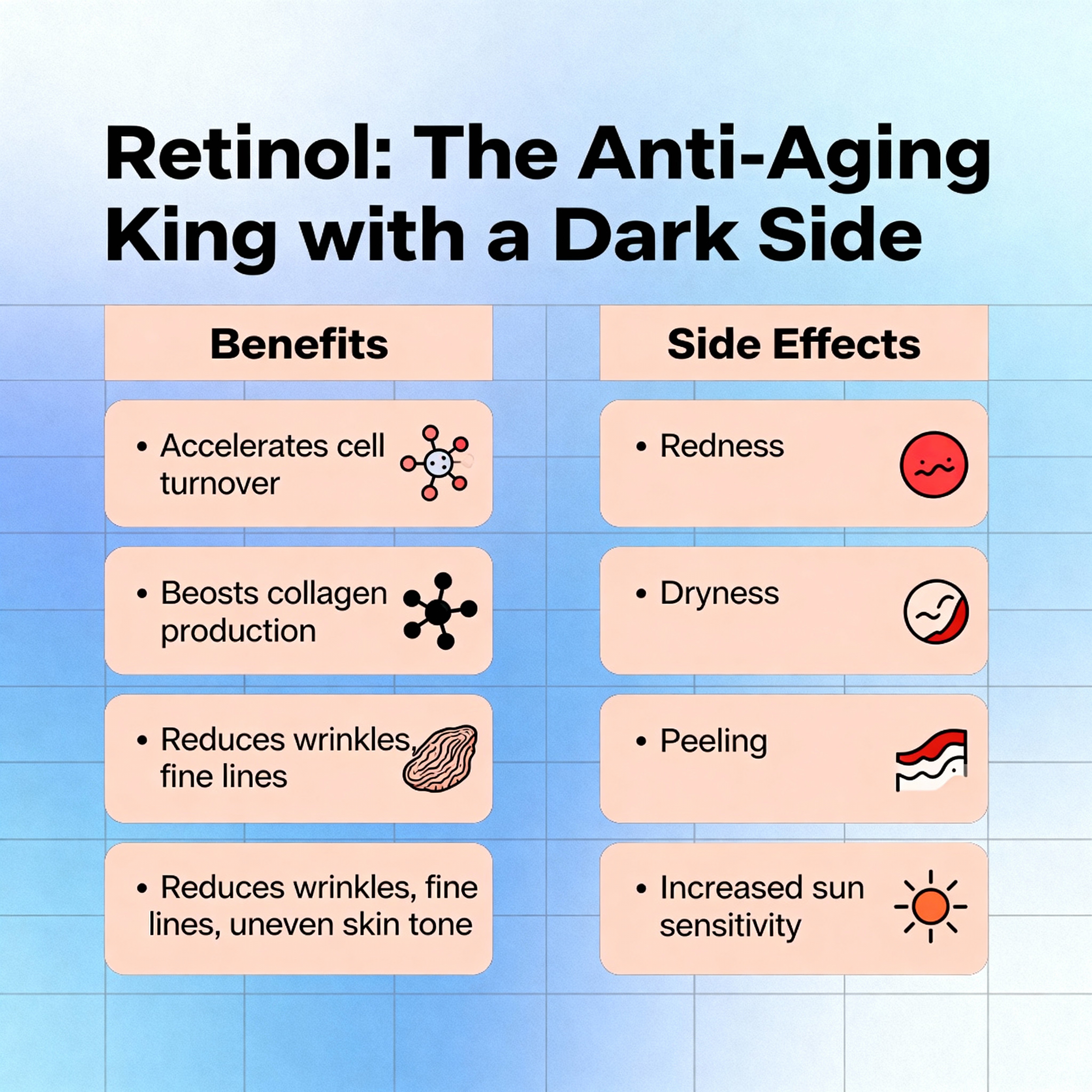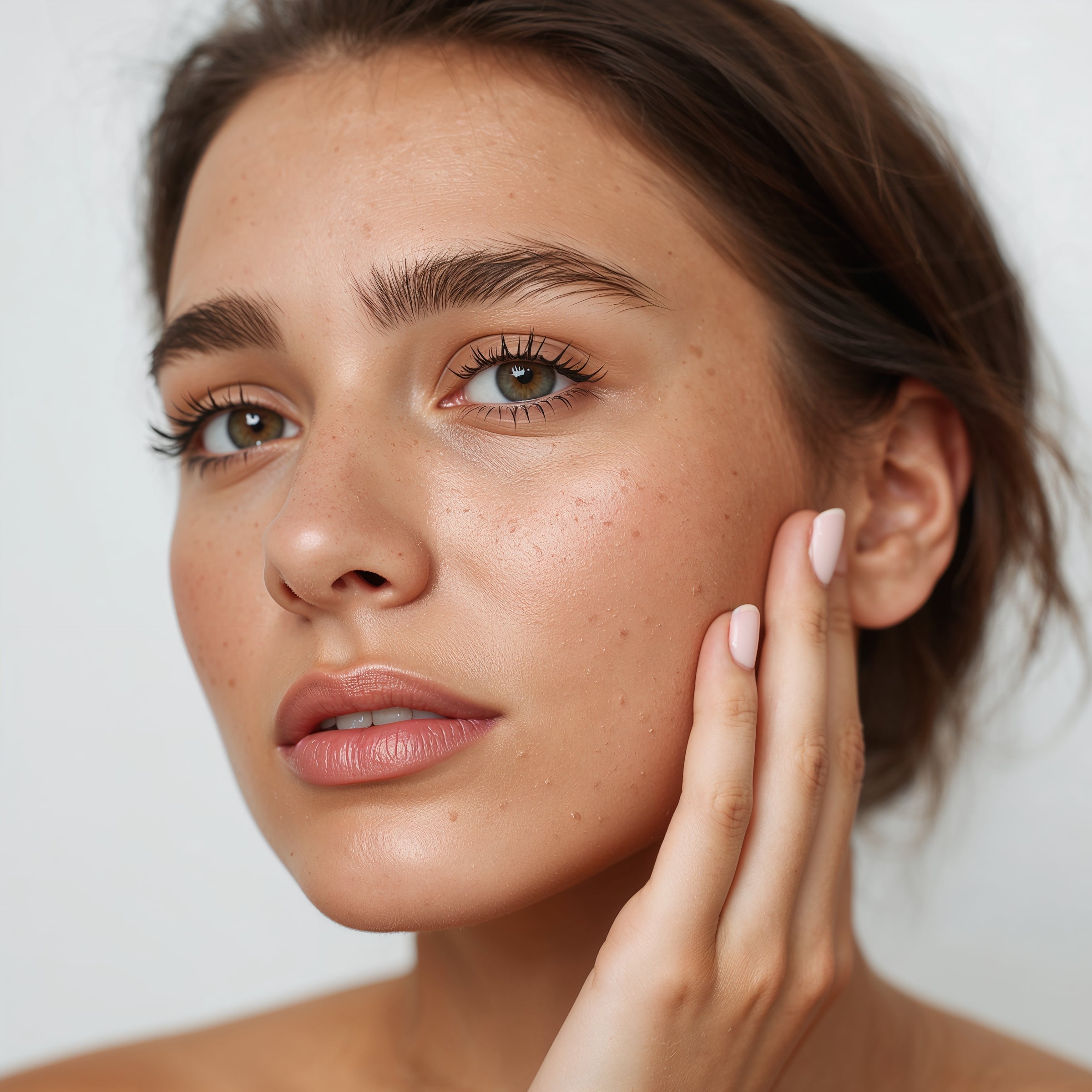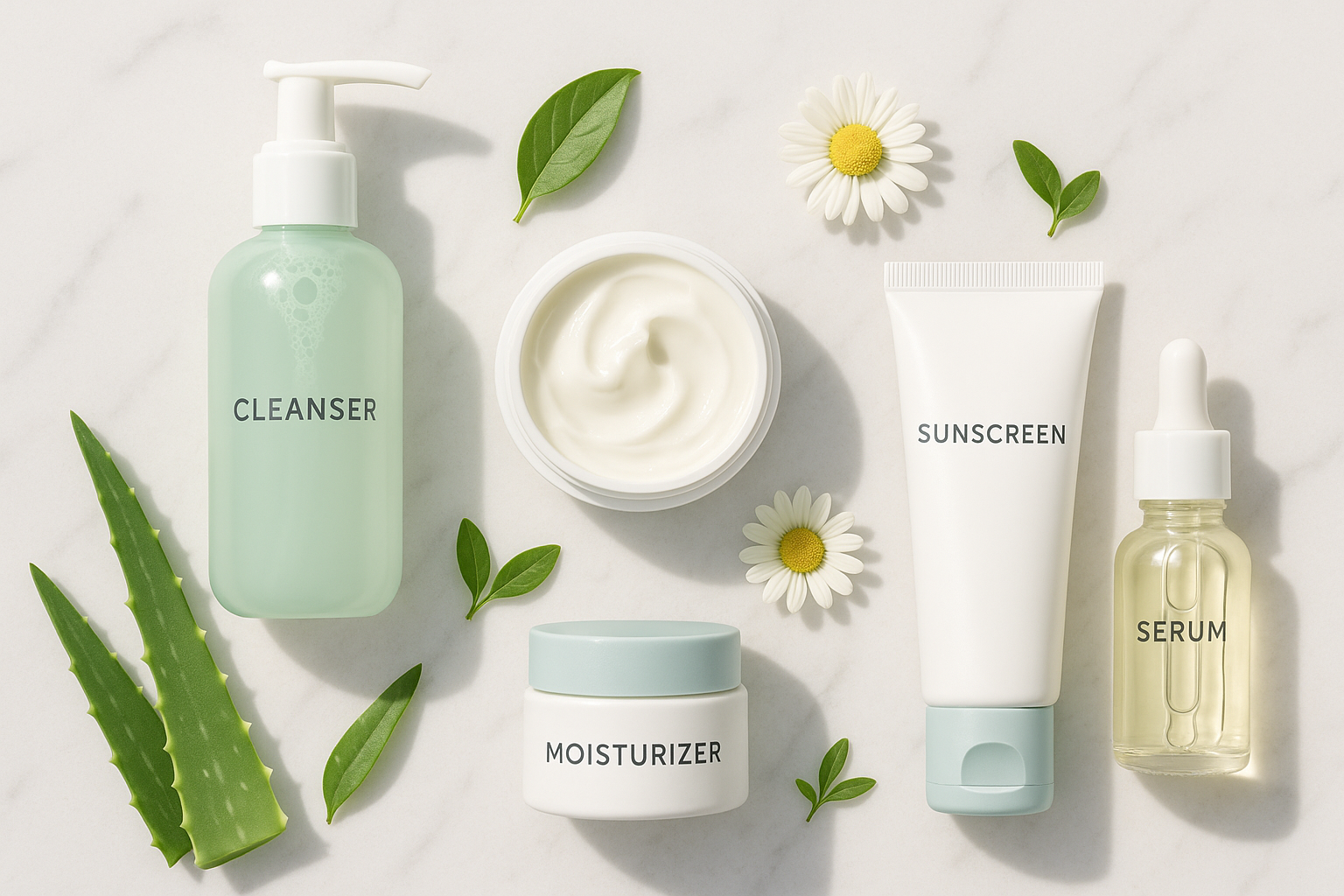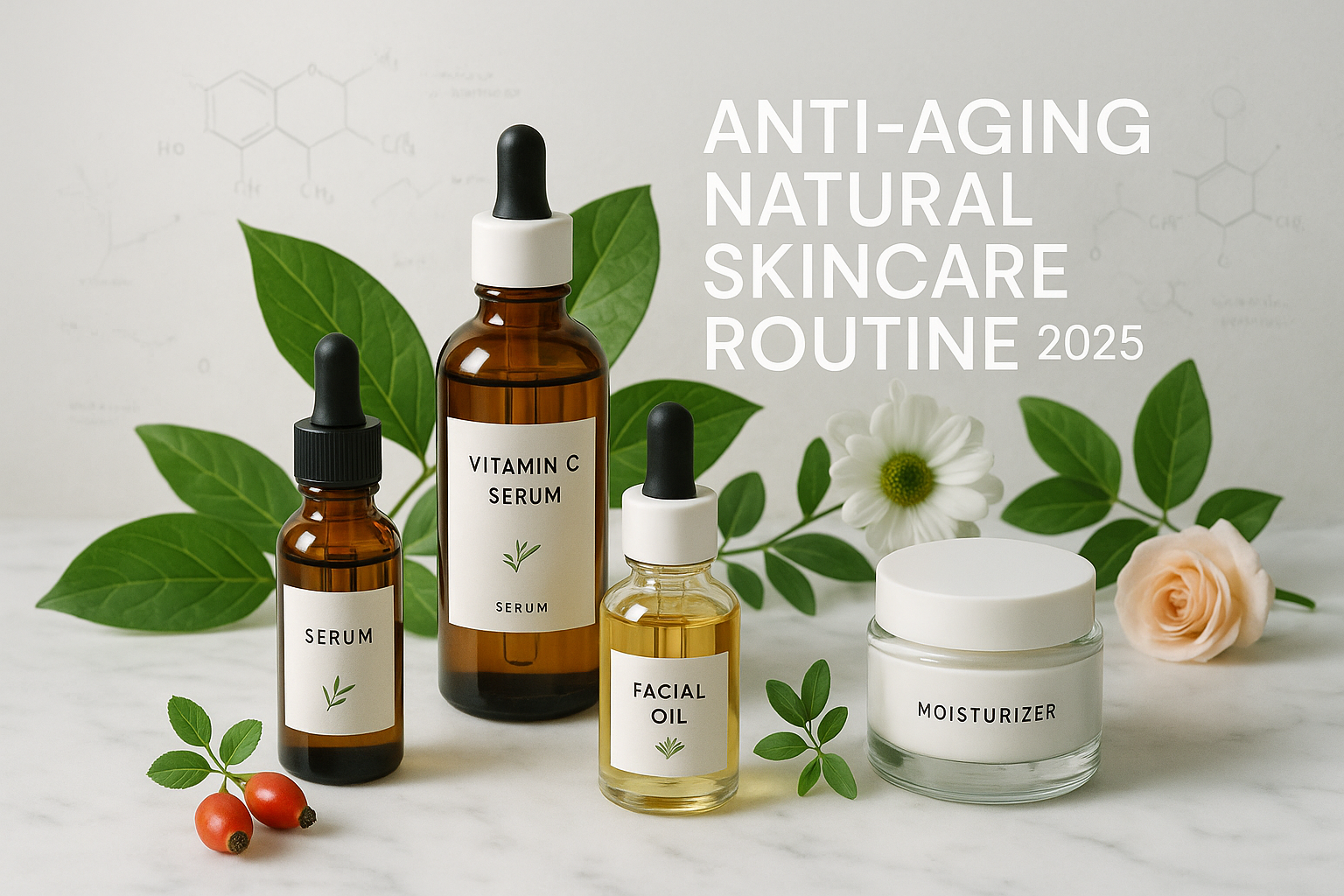Your Guide to Organic Skincare:
Welcome to the world of organic skincare! Whether you’re curious about what makes a product “organic” or wondering how to tweak your routine with the seasons, you’re in the right place. In this friendly guide, we’ll answer some of the most Googled questions about organic products and skincare. We’ll also highlight examples (including some of our favorites from Radiant Bloom Organic) to help you make the best choices for your skin. Let’s dive in!
What Does “Organic Product” Mean?

“Organic” products are those made primarily from ingredients grown without synthetic pesticides, fertilizers, or GMOs. In skincare, an organic product uses plant-based ingredients that are farmed and processed naturally, without harsh chemicals.
These products avoid common irritants like parabens, artificial fragrances, and sulfates that can aggravate the skin. Essentially, organic skincare aims to harness nature’s goodness in its purest form – think botanical extracts, essential oils, and natural butter and waxes – while minimizing any artificial additives.
It’s important to note that “organic” is a regulated term (in many countries) when it comes to labeling. For example, to be certified organic in the U.S. or EU, a skincare product must meet strict standards for ingredient sourcing and formulation. Generally, a product labeled Organic contains at least 95% organically produced ingredients (excluding water and salt), with the remaining 5% being approved natural or safe synthetic substances.
If you see 100% Organic on a label, it means every ingredient (aside from water/salt) is certified organic. In short, organic products are all about purity and sustainability – they’re made with Mother Earth in mind, and your skin can usually tell the difference.
What Are Examples of Organic Products?
Organic products span many categories, from food and clothing to personal care. In the context of skincare and beauty, examples include:
-
Organic moisturizers and creams: These use natural emollients like shea butter, aloe vera, and cold-pressed oils instead of petroleum-based ingredients. For instance, Radiant Bloom Organic’s Anti-Age Day Cream is a luxury moisturizer made with organic botanicals (like jojoba oil, aloe juice, and shea butter) to hydrate and nourish the skin.
-
Organic facial oils and serums: These are concentrates of plant oils and extracts. Our own RadiantBloom Organic Glow & Hydrate Facial Oil blends 11 organic oils (jojoba, avocado, sea buckthorn, etc.) to restore glow and moisture. Facial oils are great examples of 100% natural formulas that deliver vitamins and antioxidants to the skin.
-
Organic cleansers and toners: Instead of harsh detergents, organic cleansers rely on gentle plant-based surfactants and herbal infusions. For example, cleansers with chamomile, green tea, or willow bark can clean skin without stripping it. Organic toners often feature ingredients like rosewater or witch hazel from organic farms.
-
Organic sunscreens: These use mineral UV filters (like zinc oxide) combined with organic oils and butters. They omit chemical UV absorbers that could be harmful. Radiant Bloom’s Mineral Sunscreen SPF30 is an example, made for face & body with natural zinc and organic extracts to protect and nourish the skin.
-
Other organic beauty products: You can find organic lip balms (made with beeswax or plant waxes), organic shampoos and conditioners (free of sulfates, using plant oils for conditioning – e.g. Radiant Bloom’s Colour Care Shampoo uses grapefruit zest and natural cleansers), and even organic masks or scrubs (with ingredients like organic sugar, coffee grounds, clay, or fruit enzymes).
In short, any skincare product you can think of likely has an organic version. The key is that it’s made with plant-derived ingredients grown and processed under organic standards. Always check for certifications or ingredient lists that mention organic content. Many brands, including our own Radiant Bloom Organic, proudly list their 100% natural, vegan, and eco-certified ingredients so you know exactly what you’re putting on your skin.
An example of an organic skincare product: Radiant Bloom Organic’s All-In-One Facial Oil, made with a blend of pure botanical oils to hydrate and nourish the skin.
What Are 100% Organic Products vs. “Organic” Products?
The difference comes down to ingredient percentages and labeling. A product labeled “100% Organic” means every single ingredient (apart from water or salt) is certified organic. These are relatively rare in skincare but include things like single-ingredient oils (e.g., a bottle of 100% organic argan oil) or very simple formulas where all components are organic plant-derived. On the other hand, a product labeled just “Organic” (or carrying an organic seal) must contain at least 95% organic ingredients. The remaining 5% can be non-organic ingredients but must be from an approved list (typically safe additives like certain natural preservatives or vitamins).
There’s also a category of products that might say “Made with Organic Ingredients” – these usually have 70% or more organic content, but not enough to earn the full organic label. They can mention that they include organic ingredients (for example, “made with organic chamomile and calendula”), but they cannot use the official organic seal.
For consumers, the takeaway is: if you truly want everything in a product to be organic, look for the “100% Organic” wording. But products labeled “Organic” with 95% organic ingredients are generally considered organic skincare as well – the small remainder might just be things like minerals or nature-identical preservatives that keep the product safe and stable. Always read the ingredient list if you’re curious. Brands often clarify their organic percentage. For example, our Radiant Bloom Organic formulas are made with 100% certified organic plant ingredients (and no synthetic chemicals), effectively meeting the highest standard.
What Are the Best Organic Products?
“Best” is subjective – it depends on your skin’s needs – but there are definitely stand-out stars in organic skincare that many people swear by. Typically, the best organic products are those that combine high-quality natural ingredients with effective formulations. Here are a few categories and product examples that are often top-rated:
-
Best Organic Cleanser: A gentle, non-drying face wash such as an organic Creamy Mousse Cleanser or a Oil-to-Milk Cleanser can work wonders. These remove impurities using plant oils and gentle surfactants. (Radiant Bloom’s 2-in-1 Oil-to-Milk Cleanser is an example that dissolves makeup with nourishing oils and then rinses clean.)
-
Best Organic Moisturizer: Look for creams or lotions rich in botanical extracts and natural humectants. A favorite is often an organic day cream with hyaluronic acid and plant oils. Our Radiant Bloom Anti-Age Day Cream (Velvety Texture Face Cream) is a great pick – it’s infused with multi-molecular hyaluronic acid for hydration and shea butter and avocado oil for nourishment, all from natural sources. It leaves skin smooth without feeling greasy.
-
Best Organic Serum/Oil: Serums packed with vitamins (like vitamin C from citrus or kakadu plum) or organic facial oils with antioxidant-rich seed oils are highly popular. These can brighten and repair the skin naturally. Radiant Bloom’s Vitamin C Energising Booster and the Nourishing Facial Oil are examples – they deliver a potent dose of antioxidants using primarily organic ingredients.
-
Best Organic Eye Care: The skin around eyes is delicate, so an organic eye cream free of irritants is ideal. Products using caffeine (from coffee or green tea) and botanical oils can reduce puffiness gently. (We offer a Brightening Eye Cream with natural caffeine and a Smoothing Eye Cream with organic plant peptides for fine lines.)
-
Best Organic Sunscreen: A mineral sunscreen with organic base ingredients is a must-have for many. The SPF50 Mineral Sunscreen Stick from Radiant Bloom, for example, uses non-nano zinc oxide as the active ingredient and organic shea butter and oils to moisturize – giving you sun protection without chemical filters. It’s kid-safe and reef-safe, too.
Ultimately, the “best” organic product is one that works for your skin type and concern. It should have a high concentration of natural actives and be formulated without filler or junk ingredients. Many people find that after switching to well-formulated organic products, their skin becomes more balanced and radiant. Don’t be afraid to try samples and see what your skin loves most. (And of course, we’re happy to help you find the perfect match from our Radiant Bloom Organic collection!)
How Often Should You Use a Moisturizer?
This is a super common skincare question. In general, you should **moisturize at least twice a day – once in the morning and once at night. Moisturizing in the morning helps to hydrate and protect your skin for the day (and it preps your skin if you wear makeup), while nighttime moisturizing helps repair and nourish your skin as you sleep.
That said, how often you use a moisturizer can depend on your skin type and the climate. For instance, if you have very dry skin or live in a dry, cold environment, you might apply a moisturizer more often (or even do a quick touch-up with a light cream or facial oil mid-day). On the flip side, if you have oily skin, you may prefer a lightweight gel moisturizer once a day and a slightly richer one at night, or just stick to twice daily but with very thin layers.
The key is to listen to your skin. If it starts feeling tight or looking flaky in the afternoon, that’s a sign you might need an extra dab of moisturizer or a hydrating mist. There’s no harm in moisturizing more frequently as needed – some people even apply a light layer of moisturizer after washing their face mid-day (for example, post-gym or after being outdoors). Just ensure you’re not clogging your pores with overly heavy creams if you don’t need them.
A tip: use your moisturizer on damp skin (right after cleansing or toning) to lock in extra hydration. And don’t forget your neck! Consistent moisturizing keeps skin plump and helps maintain its protective barrier. Our advice is to make moisturizing a daily habit, morning and night – your skin will thank you by staying soft, smooth, and resilient.
Which Skincare Product Should You Use During Seasonal Changes?
Seasonal changes often call for adjusting your skincare routine. As the weather shifts, temperature and humidity levels change, and so do the needs of your skin. Here’s how you can tweak your go-to products:
-
Winter (cold, dry air): Skin tends to get drier and may feel tighter or flakier. In winter, you’ll likely prefer richer, more emollient products. For example, during chilly months many people switch to a heavier moisturizer or face oil. You might layer an oil like the Radiant Bloom All-In-One Facial Oil under a cream at night for extra nourishment. Also, cream cleansers (which don’t strip natural oils) are great in winter. Don’t forget lip balms and hand creams – the more natural butters and oils, the better to combat dryness.
-
Summer (hot, humid weather): Skin usually produces more oil, and you might be sweatier. Lighter products are your friend. In summer, you may prefer a lightweight gel moisturizer or lotion instead of a heavy cream. For instance, Radiant Bloom’s Oil-Free Hydrating Gel provides hydration without greasiness – perfect for hot days. Also, sunscreen is non-negotiable year-round, but especially in summer – an organic mineral sunscreen for daily use is ideal (and look for non-comedogenic if you’re sweating a lot).
-
Spring and Fall (transitional weather): These can be tricky because the climate is in flux. In spring, you might still deal with some dryness from winter but also increased sun exposure – so continue with good hydration and start ramping up UV protection. In fall, after a humid summer, skin might need recovery (sun damage control and replenishment). Many people incorporate serums during these seasons – like a vitamin C serum in spring for brightness or a gentle exfoliating serum in fall to shed summer’s dead skin buildup. You might prefer a balancing toner in spring/fall to keep skin calm as it adjusts to changing temperatures.
Listen to your skin during seasonal changes. You may find you swap out just one or two products – for example, prefer a thicker night cream in winter and a lighter one in summer, or use a moisturizing mask weekly in winter but just monthly in summer. Some of our customers keep two moisturizers on hand (one gel-based, one cream-based) and rotate based on the day’s weather. During seasonal shifts, also pay attention to how your skin reacts – if it’s suddenly oilier or drier, that’s your cue to adjust. The goal is to maintain balance: keep your skin hydrated but not oily, protected but not over-burdened. With a few thoughtful changes, your skincare routine can smoothly roll with the seasons!
What Is the Most Asked Question About Skincare?
When it comes to skincare, people have lots of questions! But if we had to pinpoint the most asked question, it might be this: “In what order should I apply my skincare products?” Believe it or not, figuring out the correct skincare order is a huge point of confusion (and indeed one of the most frequently Googled skincare questions). In fact, beauty experts often note that the most asked question about skincare is which product should be applied in which order.
To answer it briefly: the general rule is to apply products from thinnest to thickest consistency. After cleansing, you’d start with toner (if you use one), then apply serums or treatments (which are usually lightweight), then your moisturizer, and lastly sunscreen in the morning. An easy way to remember: cleanse → tone (optional) → treat (serums) → moisturize → protect (SPF) for daytime. For nighttime, it’s similar but you swap SPF for any night-specific treatment (like a retinol or sleeping mask) if you use one.
Of course, everyone’s routine will differ. Some common related questions are: “Do I really need a toner?” or “Where do face oils or eye creams fit in?” (Quick answers: toner is optional and comes right after cleansing; face oils generally go on last, after moisturizer, unless they’re very lightweight; eye cream usually goes after serum but before moisturizer or can be the final step).
Another extremely popular skincare question is: “Do I need to wear sunscreen every day (even if I’m mostly indoors)?” Many skincare professionals get this one daily. The answer is yes! Even indoor lighting and definitely window sunlight can expose you to UV rays, so a daily SPF is recommended. People also commonly ask, “How can I get rid of acne?” or “How do I shrink my pores?” – essentially, everyone has pressing concerns they want quick fixes for.
The truth is, there isn’t a single “most asked” question for everyone, but questions about product usage and routine order come up time and time again. It shows that while we’re all looking for that magic product, we also want to use what we have correctly. If you’re ever unsure, don’t hesitate to reach out to skincare experts or do a bit of research on reputable blogs (we love helping our Radiant Bloom community with these exact questions!). Chances are, if you’re wondering about something, thousands of others have the exact same question – so you’re not alone.
What Are Some Common “Skin Questions” People Ask?

“Skin questions” is a broad term, but it essentially refers to the frequently asked questions people have about their skin and skincare. Aside from the routine order discussed above, here are a few of the most common skin questions and concerns we hear:
-
“What is my skin type and how do I figure it out?” – Many people aren’t sure if they have dry, oily, combination, or sensitive skin. Understanding your skin type is key to choosing the right products. (Tip: if you’re oily in the T-zone and dry elsewhere, you’re combination; if you’re consistently tight and flaky, likely dry; if you’re shiny all over by midday, probably oily; if you react easily or get redness, you may be sensitive.)
-
“How do I get rid of acne/pimples?” – This is a big one. From teens to adults, breakouts are a common concern. People ask about the best acne treatments, whether diet affects acne, and how to deal with acne scars. (General advice: gentle cleansing, non-comedogenic products, possibly salicylic acid or benzoyl peroxide treatments, and patience! And yes, organic skincare can help here by avoiding pore-clogging mineral oils or irritants.)
-
“How can I reduce wrinkles or prevent aging?” – Anti-aging questions are extremely common. Folks want to know when to start using anti-aging products, if things like retinol or collagen creams work, and how to combat fine lines naturally. (We often recommend starting with good hydration, sun protection, and maybe incorporating a natural retinol-alternative like bakuchiol – fun fact, Radiant Bloom has an Organic Bakuchiol Serum that’s gentle and pregnancy-safe as a retinol alternative.)
-
“Why is my skin so sensitive/reactive?” – Many struggle with redness, irritation, or conditions like rosacea and are desperate for answers. Common questions include which ingredients to avoid for sensitive skin and how to calm inflammation. (Switching to organic or fragrance-free products can be a game-changer for these folks, since organic skincare tends to omit harsh chemicals that are known triggers.)
-
“How do I get a glowing complexion?” – Ultimately, a lot of us just want healthy, glowing skin. So people ask about improving dullness, fixing uneven tone or dark spots, and achieving that “radiant bloom” (pun intended!) look. This leads to questions about exfoliation, vitamin C serums, face masks, etc.
These are just a handful of examples. Essentially, common “skin questions” revolve around identifying one’s skin issues and finding solutions: dryness, oiliness, acne, aging, sensitivity, hyperpigmentation – you name it. The good news is that we have more resources than ever to address these (from dermatologists online to comprehensive guides). We love answering these questions for our customers. No question is too silly or too simple – whether it’s “Should I pop this pimple or not?” (generally not, by the way!) or “Which serum should I use first?”, asking questions is how you learn to take better care of your skin.
And remember, skincare is a journey. Your skin’s needs can change with age, hormones, or seasons, so new questions will arise. Keep asking and learning – your skin will keep improving for it.
What Is the Biggest Skincare Concern for Most People?
The biggest skincare concern can vary by age group and individual, but a few stand out as universally common. If we had to choose one, we’d say acne (and related breakouts) is arguably the most widespread concern, closely followed by aging (wrinkles/fine lines). Think about it: almost everyone goes through a phase of dealing with pimples (teenage years for sure, and often stress or hormonal breakouts in adulthood). On the flip side, everyone ages, so eventually things like crow’s feet or laugh lines become a talking point too.
In polls and surveys, people often cite acne as their top skin worry in their younger years, and wrinkles or loss of firmness as the top concern as they get older. But aside from those, other major concerns include: hyperpigmentation (like dark spots or melasma), sensitivity/rosacea, dark circles under eyes, and large pores. The “biggest” concern really depends on who you ask – for one person it might be controlling oily shine, for another it’s eczema and dryness.
Interestingly, a lot of these concerns are interrelated with skin health and lifestyle. For instance, sun exposure can lead to premature aging and dark spots, acne can lead to scarring (another big concern), and harsh products can lead to sensitivity – which in turn might cause redness or breakouts.
When customers ask us about their biggest skincare concerns, we make it a point to not only recommend products but also talk about habits (like using sunscreen daily to tackle aging and dark spots, or cleaning makeup brushes to help with breakouts). It’s also worth noting that what people think is their biggest problem might not be the root issue. For example, someone might be bothered by dull skin (the visible concern), but the underlying issue might be that they need better exfoliation or hydration.
To summarize: acne and aging concerns probably top the list globally. But the biggest skincare concern is personal – it’s whatever issue most affects your confidence. The good news is that with today’s knowledge (and a plethora of gentle, organic products), there are ways to address almost every concern. And we always encourage a holistic approach: proper cleansing, nourishing skincare, good diet, sun protection, and stress management – together, these tackle those top concerns effectively over time.
What Makes a Skincare Product Organic?
We touched on this earlier when defining organic products, but let’s break it down specifically for skincare formulation. A skincare product is considered organic when the majority of its ingredients are organically sourced (usually plant-based ingredients) and it contains minimal to no synthetic chemicals. Here’s what that involves:
-
Organic agricultural ingredients: These are things like plant oils (e.g. olive, coconut, jojoba), herbal extracts (e.g. chamomile, calendula), fruit juices or distillates (e.g. rose water, aloe vera gel), essential oils, butters (shea, cocoa), waxes, etc. For a product to be organic, such ingredients must come from crops grown without synthetic pesticides, herbicides, or fertilizers. They often are certified by bodies like USDA Organic, COSMOS, or Ecocert.
-
No “synthetic nasties”: Organic skincare formulas avoid the typical artificial additives found in many conventional products. That means no synthetic fragrances, no artificial dyes, no parabens (preservatives), no sulfates for cleansers, etc.. Instead, organic products might use natural preservatives (like rosemary extract or certain ferment filtrates) and natural fragrances (like essential oils or floral waters).
-
Minimal safe synthetics (if any): In some cases, an organic product may include a small percentage of safe, non-toxic synthetic ingredients – but only if necessary and typically approved by organic standards. An example could be a food-grade preservative or a natural emulsifier. These are usually the <5% we mentioned. But many organic brands strive for 100% naturally-derived content. Radiant Bloom Organic products, for instance, are formulated with 100% natural ingredients, so we don’t include any synthetic chemicals at all in most of our formulations.
-
Cruelty-free and often vegan: While not a requirement for being “organic,” many organic skincare brands also commit to cruelty-free testing and avoid animal-derived ingredients. This goes hand-in-hand with the ethos of being clean and ethical. So, what makes a product organic is not just the absence of chemicals, but an overall philosophy of clean, gentle, and ethical formulation.
In summary, an organic skincare formulation focuses on plant-derived, naturally processed ingredients that are grown in an eco-friendly way. The formulation process avoids harsh chemical processing – for example, oils are cold-pressed rather than solvent-extracted, herbs might be steam-distilled to get extracts, etc. The result is a product that tends to be richer in natural nutrients (like vitamins, antioxidants, fatty acids) because those haven’t been destroyed by synthetic processing.
If you ever read an ingredient label and see lots of Latin plant names (and recognize herbs, fruits, oils you know), that’s a great sign. For example, a quick glance at our Radiant Bloom Nourishing Facial Oil shows ingredients like Simmondsia Chinensis (Jojoba) Oil, Persea Gratissima (Avocado) Oil, Hippophae Rhamnoides (Sea Buckthorn) Oil, etc. – all organic and recognizable. That’s what makes it organic: it’s basically bottled nature, crafted for your skin.
Why Is There a Big Hype Around Organic Skincare?
You might have noticed that organic and “clean” beauty products have exploded in popularity. There is indeed a big hype around organic skincare, and it’s driven by a few key factors:
- Health and Safety Concerns: People are more aware than ever of what they put on their bodies. Over the years, reports about potentially harmful chemicals in cosmetics (like parabens, phthalates, or certain sulfates) have made consumers cautious. This has led to a surge in demand for products that are free from these ingredients. Organic skincare, by definition, avoids a lot of these questionable chemicals, so consumers feel it’s a safer choice for their skin. There’s a growing cultural shift toward health consciousness – choosing skincare that’s as “clean” as the food we eat. In fact, the rise of organic skincare reflects a broader move toward sustainability and ethical consumption.
2. Environmental and Ethical Appeal: Organic farming is better for the planet (no toxic pesticides seeping into soil and water). Many fans of organic skincare are drawn to it because it aligns with their environmental values. These products are often cruelty-free and come in eco-friendly packaging. The hype is partly because using organic skincare makes people feel like they are making a positive difference – it’s “beauty without guilt.” Modern consumers, especially younger generations, love brands that are sustainable, cruelty-free, and transparent about their sourcing. Organic brands usually tick those boxes (and Radiant Bloom Organic is proud to be one of them!).
3. Improved Efficacy with Natural Ingredients: There used to be a myth that “natural products don’t work as well.” Not anymore! Advances in green chemistry have given us highly effective natural alternatives. For instance, we now have bakuchiol (a plant-based retinol alternative that fights wrinkles without irritation) and super-antioxidants from berries and teas that can rival lab-made actives. Organic skincare has shown that you can get results – like smoother skin, brighter complexion, acne control – without harsh ingredients. This has made many people convert to team organic. They find their skin responds better when they eliminate synthetic irritants. As a result, word-of-mouth about successes (e.g. “my chronic dryness went away after switching to this organic cream!”) fuels the hype.
4. Social Media and Celebrity Influence: Let’s not underestimate the power of Instagram and influencers. So many beauty bloggers and even dermatologists now talk about ingredients – what to avoid and what to use. Organic products get lots of love in these discussions for being “clean” and “green.” Additionally, many celebrities have launched or endorsed organic skincare lines, bringing more attention to the space. When famous names tout the virtues of all-natural face oils or organic detox masks, fans take note. The hype builds as more people share their organic skincare routines online, creating a community vibe around it.
In essence, the hype isn’t just a fad – it’s rooted in a genuine change in consumer preference. People want transparency, safety, and sustainability, and organic skincare provides that. It’s become more than just a niche; it’s a significant segment of the beauty industry. According to market research, the organic skincare market has been booming and is projected to keep growing rapidly – clearly indicating that this “hype” has real momentum. And honestly, it’s a positive trend: it encourages brands to formulate better, cleaner products. We’re excited to be part of this movement, helping folks discover that taking care of your skin can be both effective and aligned with your values.
Is Organic Skincare Really Better?

This is a question many ask when considering the switch: “Is organic skincare really better for your skin?”. The short answer for most people is yes – it can be better, especially if you value gentle and holistic skin care. Here’s why:
-
Fewer Harsh Chemicals: Conventional skincare might contain ingredients that can be harsh or irritating (like strong synthetic fragrances, alcohols, or detergents). Organic skincare avoids most of these by default. As a result, organic products tend to be gentler on the skin and cause fewer adverse reactions. Many users report less redness, fewer breakouts, and improved texture after switching to an organic routine, precisely because they’ve eliminated irritants. In fact, because organic products are formulated without common allergens and toxins, they’re often considered safer and better for your skin’s long-term health.
-
Nutrient-Rich Formulas: Organic products are packed with botanical ingredients that are naturally rich in vitamins, antioxidants, and essential fatty acids. Think of things like rosehip oil (full of Vitamin A and C), green tea (antioxidants), or aloe vera (soothing vitamins and polysaccharides). These natural compounds can nourish the skin deeply. Sometimes in lab-made products, you’ll get one or two active ingredients in a base of fillers. In organic products, the base is active – every oil or extract in it brings something beneficial. This often leads to a more holistic effect on skin – you’re not just addressing one issue with a single active, you’re supporting the skin’s overall barrier and health with a cocktail of natural goodies.
-
Better for Sensitive Skin: If you have sensitive skin or conditions like eczema or rosacea, you may find organic skincare to be better tolerated. By eliminating synthetic preservatives, artificial fragrance, etc., you reduce the risk of triggering inflammation. Dermatologists do caution that “natural” doesn’t automatically mean non-irritating (for example, some people can be allergic to essential oils or nuts). But generally, clean formulations mean less irritation for sensitive skin types. You can also choose unscented organic products if essential oils bother you. Overall, many folks with sensitive or problematic skin (acne-prone, etc.) find their skin calms down when they go organic, because they’ve simplified what they’re exposing it to.
-
Holistic Benefits: “Better” can also mean beyond skin-deep. Organic skincare aligns with a healthier lifestyle and often an eco-conscious mindset. There’s peace of mind in knowing your products are non-toxic and ethically made. That stress reduction and happiness can indirectly benefit your skin too (stress does show up on the skin, after all!). There’s also a theory that skin can recognize and utilize natural substances more effectively – while that’s hard to prove, it is true that many synthetic skincare actives are trying to mimic what natural ingredients already do (for example, lab-made antioxidants vs. plant antioxidants). So why not go straight to the source?
All that said, organic skincare isn’t magic – you still have to find products that suit your skin’s needs. Not every organic product will automatically give you better results than a non-organic one. For example, someone with severe acne might still benefit from a dermatologist-prescribed retinoid (which isn’t organic) in conjunction with organic cleansers and moisturizers. And conversely, just because something is organic doesn’t mean you might not react to a particular plant extract.
But in general, if we’re talking about skincare for the average person looking to improve their skin health, going organic is often a positive step. You reduce your chemical exposure and often end up with a healthy, radiant glow as your skin adjusts to a more natural regimen. We might be a bit biased, but seeing our customers’ before-and-after stories has convinced us that yes, organic skincare can truly be “better” for a lot of people – not just for their skin’s appearance, but for how they feel about their self-care routine.
Are There Any Disadvantages of Organic Skincare?

Organic skincare sounds great (and it is!), but it’s fair to ask if there are any downsides. The truth is, no skincare approach is perfect for everyone, and organic products do come with a few potential disadvantages to be aware of:
-
Shorter Shelf Life: Because organic products avoid strong synthetic preservatives (like parabens), they often have a shorter shelf life once opened. Natural preservatives (like certain plant extracts or vitamin E) are used, but they may not preserve a product for as long as chemical preservatives would. This means your organic face cream or serum might have an expiration date sooner than a conventional one. You may notice changes in smell or texture if a product is kept for too long. Essentially, organic skincare can expire faster, so you’ll want to use it up in a timely manner (and store it in a cool, dark place to extend its life).
-
Possibly Higher Cost: Organic ingredients can be more expensive to source and formulate with. Organic farming yields can be lower, and certification processes cost money. Thus, organic skincare products can be pricier than mass-produced conventional ones. Not all are expensive – there are affordable options – but in general you might pay a premium for that ECOCERT or USDA Organic logo. Some people find this worth it for the quality and ethics; others on a tight budget might find it challenging. That said, we at Radiant Bloom strive to keep prices reasonable while using top-notch organic ingredients. Still, cost is a factor to consider.
-
Availability and Variety: Although the organic beauty market is growing, it’s still smaller than the conventional market. This means sometimes it’s a bit harder to find a very specific product to match your need. There might be fewer options in certain categories. For example, if you need a very strong clinical-strength chemical exfoliant, you won’t really find an “organic glycolic peel” at 30% – instead, you have gentler fruit acid peels. If you have a very niche need, the variety in organic lines might feel limited (though it’s improving every year!). Also, not all stores carry a wide range of organic brands, so you might have to order online. In short, finding a wide variety of organic products can be challenging at times, though this is rapidly changing as demand grows.
-
Potential Allergens: “Organic” doesn’t automatically mean “hypoallergenic.” If you have plant allergies, you’ll still need to read labels. For instance, someone allergic to lavender shouldn’t use a cream with organic lavender oil. Sometimes people assume natural = won’t irritate, which is mostly true, but not if you’re specifically allergic to a natural ingredient. The good news is organic brands are usually transparent about what’s inside (no hidden fragrances, etc.), so it’s easier to know and avoid triggers.
-
Results May Be Gradual: This isn’t exactly a disadvantage, but worth noting: organic skincare often works gradually and gently. If you’re used to a quick fix from a strong chemical (like a pimple cream that zaps a zit overnight but is very drying), the organic approach might seem slower. Organic products focus on improving skin health over time (for example, balancing oil production or strengthening the skin barrier), so you might need a bit of patience. The results, however, are usually sustainable and with fewer side effects. It’s a trade-off: a gentle journey vs. a quick aggressive treatment.
To sum up, the main “disadvantages” of organic skincare are higher cost, shorter shelf life, and slightly limited availability, plus the need to be mindful of natural allergens. These are relatively minor in comparison to the benefits, but they’re good to keep in mind. We like to be honest that no approach is one-size-fits-all. If you’re someone who values freshness, uses your products regularly (so you finish them), and invests in quality over quantity, these cons won’t be much of an issue. And as the organic industry innovates, even things like shelf life and pricing are improving.
In fact, one source concisely notes that organic skincare products can be more expensive and may have a shorter shelf life due to the lack of preservatives. These are trade-offs to consider. But many find that the peace of mind and skin benefits are well worth it. And we’re working hard to provide organic options that are accessible, effective, and long-lasting!
Does Organic Mean 100% Natural? (Organic vs. Natural Skincare)

This is a great question because the terms “organic” and “natural” often get used interchangeably, but they aren’t exactly the same. Does organic mean 100% natural? Not necessarily – and vice versa, not all “natural” products are organic. Let’s clarify:
-
Natural: In skincare, “natural” generally means the ingredients are derived from natural sources (plants, minerals, etc.) and have minimal processing. For example, a natural ingredient could be olive oil, clay, or beeswax – things that come from nature. However, the term “natural” isn’t strictly regulated. A product could be labeled natural even if it contains only, say, 50% ingredients from natural origin and the rest synthetic (some brands take liberties here). Also, natural doesn’t indicate anything about how those natural ingredients were grown or processed. They might be natural but could have been grown with pesticides or genetically modified, etc. In short, “natural” refers to the source, but not the purity or farming practice.
-
Organic: As we discussed, organic implies the ingredients are not only natural in origin, but also grown without synthetic chemicals and certified by some standard. Organic is a subset of natural – the cream of the crop, if you will. All organic ingredients are natural (you can’t have “synthetic organic” because that’s oxymoronic), but not all natural ingredients are organic. For example, coconut oil can be natural; if it’s from an organically farmed coconut, then it’s organic. If not, it’s still natural but not organic.
So, an organic skincare product is usually 100% natural in terms of ingredients, but it also meets that higher bar of organic production. Meanwhile, a product that says “100% natural” on the label might not be fully free of synthetic additives (it could be mostly natural with a pinch of preservative), and unless it says organic, those natural ingredients might not be organically farmed.
To put it simply: Organic = Natural + strict standards & certification. Natural is good, organic is a step further. One concise explanation from skincare experts is: ‘Natural’ refers to ingredients derived directly from plants or minerals without chemical processing, whereas ‘Organic’ implies those natural ingredients were cultivated without synthetic chemicals or GMOs. That means organic products have stricter guidelines and often a certification logo to prove it, whereas natural products rely on the brand’s word and reputation.
For consumers, both natural and organic are generally positive descriptors. If you see either, you’re likely looking at a product with fewer synthetic chemicals than a typical one. However, if you want the purest option, look for that organic certification or wording. Also, read the ingredient list. Sometimes a product will slap “natural” on the front, but the back shows a bunch of unpronounceable synthetic ingredients – a practice known as “greenwashing.” Organic labeling is less prone to that because of regulation.
In our Radiant Bloom Organic line, we actually fulfill both: we use natural ingredients and they are organically sourced. We like that our customers don’t have to choose one or the other. But always do a bit of homework: natural and organic skincare share a philosophy (kinder to skin and earth), yet organic is the more rigorously defined term.
So, to answer the question: “Does organic mean 100% natural?” – Mostly yes in terms of content, but it means even more than that. And “Is natural the same as organic?” – No, organic has the added assurance of how the ingredients are grown and handled. Knowing the difference helps you make the choice that’s right for you.
What Is an Organic Skincare Formulation?
An organic skincare formulation refers to how an organic product is crafted – basically, the recipe and method that goes into making a skincare product that meets organic standards. It’s a bit of a technical term, but let’s break it down in simple terms:
Imagine you’re baking a cake, but you want it to be an organic cake. You’d need organic flour, organic sugar, organic eggs, etc., and you’d follow a recipe to bake it. In the same way, an organic skincare formulation means the formula (recipe) of the skincare product uses predominantly organic ingredients and follows certain guidelines.
Key aspects of an organic formulation include:
-
High Organic Content: Typically, an organic formulation will have a certain percentage (often 95% or more) of its ingredients that are organic. For example, an organic lotion’s formulation might consist of organic aloe vera juice, organic oils (like almond or argan), organic herbal extracts, etc., comprising the bulk of the formula. If any non-organic ingredients are present, they are usually naturally derived and approved for organic standards (like a food-grade preservative or a naturally mined mineral).
-
Free from Prohibited Substances: The formulation deliberately excludes ingredients that organic standards forbid. This includes synthetic fragrances, petroleum-derived ingredients, sulfates, parabens, and so on. It also excludes things like genetically modified ingredients. For instance, an organic formulation wouldn’t use GMO corn oil – it would use non-GMO, organically grown corn oil (if corn oil were needed).
-
Process and Preservation: How the product is formulated and preserved matters. Organic formulations often rely on physical processes (like cold-pressing oils, steam distilling plants for essential oils) rather than chemical solvent extractions. They also might use alternative preservation methods like airtight packaging or combining certain essential oils that have antimicrobial properties to keep the product fresh. The formulation process avoids irradiation of ingredients and harsh chemical treatments. It’s a more artisanal approach in many cases, focusing on keeping the natural benefits of ingredients intact.
-
Balanced and Skin-Friendly: Organic skincare formulators usually aim for a balance of ingredients that support the skin’s health. They often include things to cover the basics: hydrating components (like glycerin or hyaluronic acid derived via natural processes), nourishing oils for moisture, botanical extracts for targeted benefits (calming, brightening, etc.), and maybe naturally derived actives (like salicylic acid from willow bark, or lactic acid from fermented sugars for exfoliation). An organic formulation tries to use the inherent power of natural ingredients in a clever way to create a product that is both gentle and effective.
In summary, an organic skincare formulation is the blueprint of a product that ensures everything in it aligns with organic principles. It’s like a cookbook recipe that’s been adjusted to be fully organic. When you purchase an organic product, you’re not just paying for the ingredients, but also for the careful formulation work that went into substituting any synthetic component with a natural one, and making sure the final product is stable and pleasant to use.
For example, if one were to examine the formulation of our Radiant Bloom Organic moisturizers, you’d find they use a plant-based emulsifier to mix oils and water (instead of a synthetic one), natural thickeners like xanthan gum or candelilla wax to give a nice texture, and they might preserve the product with ingredients like radish root ferment or potassium sorbate (which are acceptable in organic products in small amounts) rather than traditional parabens. That formulation meets organic guidelines and still yields a high-quality cream.
So, when you hear “organic skincare formulation,” think: a skin-loving recipe full of organic goodness, crafted with care. It’s the behind-the-scenes magic that makes an organic product more than the sum of its parts.
Is “Fresh” Skincare Non-Toxic?
The term “fresh skincare” can mean a couple of things. Some people use it to refer to skincare made with fresh, natural ingredients (often in small batches, like those brands that hand-make products weekly). There’s also a well-known skincare brand literally named “Fresh.” To cover all bases, we’ll address both interpretations:
-
If by “fresh skincare” we mean products made with fresh, natural ingredients, then yes, those are generally non-toxic. Usually, this implies minimal preservatives, no harsh chemicals, and products that might even need refrigeration or have short shelf lives because they’re so pure. These kinds of fresh-made products (like a fresh avocado face mask, or a toner blended from freshly brewed green tea) are typically free of toxins – they’re about as clean as it gets. They’re often similar to organic products in philosophy: using food-grade or botanical ingredients to treat your skin. The only caution is that because they lack strong preservatives, you have to use them up quickly to avoid bacterial growth. But in terms of being non-toxic, fresh, natural skincare is about as non-toxic as possible – no synthetic chemicals to worry about.
-
If we’re talking about the “Fresh” brand (Fresh®), their products are known for incorporating many natural ingredients (like soy, sugar, rose, etc.) and they generally market themselves as using clean, gentle ingredients. However, not all of their products are 100% natural or organic. They do avoid a lot of nasty ingredients and are considered a higher-end clean brand, but they might use some safe synthetics where needed for texture or preservation. The Fresh brand does emphasize a sensual, pleasurable skincare experience with lots of botanicals. They are not typically labeled as “non-toxic” in marketing (that term is used more by indie clean beauty brands), but their ethos is to combine natural extracts with modern science. From consumer experience, Fresh products are usually well-tolerated and formulated without parabens, etc. So one could say the Fresh brand strives to be non-toxic and gentle, though it may not meet the strictest definition of “all-natural.”
In general, “non-toxic” skincare means products made without ingredients that are known or suspected to harm health. Most organic or natural brands fall under non-toxic by default. If you’re making DIY fresh skincare in your kitchen (like a honey-yogurt mask), that’s definitely non-toxic (just maybe perishable!). If you’re using a reputable brand like Fresh or any clean beauty line, you’re likely avoiding the major offending chemicals, which could be considered non-toxic as well.
To be thorough: there isn’t a formal certification for “non-toxic” like there is for “organic.” It’s more about brand philosophy. Many brands (possibly including Fresh) formulate to meet clean retailer standards (like Credo or Sephora’s clean standards), which ban a list of toxic ingredients. So yes, the trend is that “fresh” or clean skincare products are made to be safe and non-toxic for consumers. Always check the ingredient list if you’re concerned, but if you stick to brands that emphasize natural formulations (like we do at Radiant Bloom Organic), you can feel confident you’re using non-toxic products.
In short, fresh = likely non-toxic in the context of skincare. Just remember that even natural substances can cause reactions in some individuals (for example, someone could be sensitive to an essential oil). But these products won’t contain the big-name toxins that many worry about. And if you ever have doubts about a specific product, look for transparency from the brand – most proud clean brands will detail what they don’t use and why their stuff is safe.
What Is the No. 1 Skincare Brand?
Ah, the million-dollar question: “What is the No. 1 skincare brand?”. You might expect a simple answer like a brand name, but it actually depends on how you define “No. 1”. Are we talking about sales worldwide? Dermatologist recommendations? Customer satisfaction? There are many great brands out there, each claiming the top spot in one way or another.
In terms of global sales and recognition, large companies often take the crown. For instance, in recent reports, L’Oréal’s skincare line CeraVe has been referred to as the #1 skincare brand globally in terms of popularity and sales. CeraVe (which is more of a mass-market, dermatologist-developed brand) sells like hotcakes because it’s effective and affordable, hence that title. Similarly, brands like Neutrogena, Olay, or Nivea often rank very high worldwide due to their long-standing presence and broad reach.
From our perspective in the organic skincare niche, we aspire for Radiant Bloom Organic to be your No. 1 🙂. When it comes to organic and natural products, the playing field is more level between indie brands and big companies. You might not see a single organic brand dominating globally the way a mass brand does, but there are a few standouts known for quality (for example, brands like Weleda, Dr. Hauschka, or Tata Harper have strong reputations in natural skincare).
If the question is being asked on Google a lot, likely people are looking for who officially holds the title of largest or most popular skincare brand. As noted, CeraVe was recently highlighted as the world’s No. 1 skincare brand by some metrics, which speaks to its wide acceptance. But remember, No.1 doesn’t mean best for you! It usually just means it sells the most or is very widely used.
Our advice: Instead of focusing on which brand is #1 overall, think about which brand is #1 for your skin’s needs. The top brand for anti-aging might be different from the top brand for acne, or for organic enthusiasts, etc. It’s kind of like asking “what’s the #1 cuisine in the world?” – answers will vary.
Of course, we humbly suggest that if you’re looking for high-quality organic skincare, Radiant Bloom Organic is a strong contender. We put a lot of love and science into our products to make them effective and safe. In our book, the best brand is the one that aligns with your values (be it organic, cruelty-free, etc.) and consistently gives you great results. It might not always be the one with the biggest marketing budget or sales numbers.
So, in summary: The official No.1 brand by global popularity recently is something like CeraVe (a widely-trusted line known for simple, effective formulations). But the beauty industry is vast, and “No.1” can mean different things. Feel free to explore and find your personal No.1 – and if you need recommendations or have specific goals, we’re here to help you find the perfect product match.
Is an Organic Facial Good for You?

If by “organic facial” we mean a facial treatment (like at a spa or at home) using organic products, then yes – an organic facial is definitely good for you! An organic facial would involve cleansing, exfoliating, masking, and moisturizing using products that are all-natural and free from harmful chemicals. Here’s why an organic facial can be beneficial:
-
Gentle on Skin: Facials are meant to rejuvenate your skin, and using organic products means the process will be gentle and skin-friendly. You’re less likely to experience irritation or adverse reactions during or after the facial because the products don’t contain harsh ingredients. For example, steaming your face and then applying an organic clay mask with herbal extracts can draw out impurities without stripping your skin’s moisture, leaving you refreshed rather than red-faced.
-
Nutrient Boost: Organic facials often involve products rich in natural vitamins and antioxidants. Imagine a face massage with an organic rosehip oil (vitamin C and A for brightening), or a mask made of organic honey and fruit enzymes. These treatments feed your skin nutrients while you relax. The result is often a noticeable glow. The skin can actually look more radiant and alive after being treated with pure botanical blends – hence why many people swear their skin “never looked better” than after a truly natural facial.
-
No Toxins Absorbed: One reason people opt for organic facials is to avoid absorbing any questionable chemicals through the skin. Your skin does absorb a portion of what you put on it (especially with heat and massage increasing penetration). With an organic facial, you can lay back and enjoy the pampering without worrying “What’s soaking into my pores right now?” Everything is non-toxic and often even edible in quality. So it’s a peace-of-mind thing as well as physical benefit.
-
Aromatherapy and Well-being: Organic products often have wonderful natural scents from essential oils and flower waters. An organic facial can double as an aromatherapy session – the scent of real lavender or rose can be deeply relaxing, reducing stress hormones in your body. Lower stress can lead to better skin (stress can trigger breakouts or dullness). So there’s a holistic wellness aspect; it’s good for you inside and out.
Of course, as with any facial, the expertise of the esthetician and the specific products used matter. You’d want to ensure you’re not allergic to any natural ingredients (even organic, someone could be allergic to say, strawberries in a fresh mask). But generally, an organic facial is suitable even for sensitive skin types – in fact many people with sensitive skin seek out organic facials to avoid flare-ups.
In our experience, customers who use our Radiant Bloom Organic products at home for a DIY facial – like doing a gentle exfoliation with our AHA Peeling Concentrate then a hydrating mask and finishing oil – report that their skin feels soft, calm, and glowing afterwards. The absence of synthetic perfumes or stinging chemicals means it’s just a soothing experience.
So yes, an organic facial is good for you. It’s basically all the pampering and skin benefits of a regular facial, minus any ingredient risks. Your skin gets pure TLC. If you have access to a spa that offers organic facials, it’s worth a try. And if not, you can recreate the experience at home by using your favorite organic products step by step. Your skin (and soul) will likely thank you!
Is Organic Skincare Good for Sensitive Skin?

Often, yes, organic skincare is very good for sensitive skin. Sensitive skin typically means skin that gets irritated or reddened easily, reacts to a lot of products, or might have conditions like rosacea or eczema. The reason organic products can be beneficial for this skin type comes down to their purity and gentleness:
-
Free from Harsh Irritants: Sensitive skin and harsh chemicals do not mix well. Many conventional products have synthetic fragrances, alcohol, sulfates, or preservatives that can sting or inflame sensitive skin. Organic skincare avoids most of these common culprits. By using products that are fragrance-free (or only scented with a tiny amount of natural essential oils) and free of things like dyes or sulfates, you’re immediately reducing the risk of irritation. For example, if you switch to an organic cleanser that uses a soap-free, sulfate-free formula with calming botanicals, your sensitive skin is likely to feel more comfortable after washing (no tight, itchy feeling).
-
Soothing Natural Ingredients: Organic brands often include calming plant extracts precisely because they cater to a more ingredient-conscious crowd. Ingredients like chamomile, aloe vera, calendula, oatmeal – these are time-tested soothers for redness and irritation. When in organic form, they retain their potent anti-inflammatory properties. Sensitive skin usually loves these! An organic aloe vera gel, for instance, can be a lifesaver for calming a flare-up. Our Radiant Bloom products for sensitive skin (like the Sensitive Skin Moisturiser and Sensitive Skin Cleanser) are packed with gentle heroes such as aloe, bisabolol (from chamomile), and jojoba oil – all designed to comfort delicate skin.
-
No Synthetic Preservatives = Less Chance of Reaction: Some sensitive individuals react to certain preservatives like parabens or formaldehyde-releasing agents in skincare. Organic lines use alternative preservation methods that are generally milder (or they opt for shorter shelf life over using strong preservatives). This means fewer random chemicals for your skin to potentially freak out over. While someone could be sensitive to a natural component, the overall load of irritants in an organic product is much lower than a conventional one.
-
Better for Skin Barrier: Sensitive skin often has a compromised skin barrier (the protective outer layer of skin is a bit weaker, allowing irritants in and moisture out). Organic skincare tends to be very barrier-friendly – lots of plant oils rich in essential fatty acids, ceramide-like substances, and gentle hydrating ingredients. Over time, using organic moisturizers and oils can help strengthen your skin barrier. A stronger barrier means less sensitivity because your skin isn’t as quick to let irritants penetrate and cause trouble. For instance, oils like rosehip or evening primrose (common in organic facial oils) are high in omega fatty acids that nourish the barrier.
Now, one thing to note: “Organic” doesn’t guarantee “non-irritating for everyone.” A person could be allergic to a natural ingredient – say, lavender oil or citrus extracts – and that product would cause a reaction even though it’s organic. So, if you have very sensitive skin, it’s wise to patch test even organic products, especially those with essential oils or herbal extracts you haven’t used before. Also, some extremely sensitive folks might prefer products with minimal ingredients (sometimes simpler is better – like just a pure organic jojoba oil as a moisturizer).
Overall though, the feedback from many sensitive-skin users is that after switching to organic or at least fragrance-free natural products, their skin became less reactive and much happier. Organic skincare’s gentle approach aligns well with the needs of sensitive skin. By avoiding the synthetic “bad guys” and embracing the calming gifts of nature, you give your sensitive skin a break. It’s kind of like feeding a sensitive stomach a clean, simple diet – skin responds similarly.
We’ve designed Radiant Bloom’s sensitive range keeping this in mind: to be as soothing and non-irritating as possible. So far, our community with sensitive skin has been loving it (and we love them back!). So yes, if you’re struggling with sensitivity, going organic (or at least “free-from” harsh additives) is a great route to try.
Are Organic Products Safer than Conventional Products?
In general, organic products are considered safer for both your body and the environment compared to conventional products. “Safer” in this context usually means they pose less risk of exposing you to harmful chemicals or causing adverse health effects in the long run. Here’s why organic often gets the safety badge:
-
No Harmful Chemicals: Organic products (whether skincare, food, or otherwise) avoid the use of synthetic pesticides, fertilizers, and other chemicals in their production. In skincare, this translates to formulations that are free from many toxic ingredients that people worry about (like no parabens, phthalates, heavy metals, etc.). When you use an organic lotion, you don’t have to be concerned that you’re slathering your body with, say, residues of a pesticide or a petrochemical by-product. This makes it inherently feel safer. From a health perspective, minimizing chemical exposure is generally a good idea – there’s ongoing debate about how much our everyday chemical exposures contribute to issues like hormone disruption or allergies, but many choose organic to play it safe and minimize those unknown risks.
-
Better for Long-Term Health: Some conventional ingredients might give quick results but can have negative long-term effects (for instance, over-exfoliating acids or steroids in creams might thin skin over time). Organic products take a more balanced approach, aiming to nurture skin holistically. An organic skincare routine can actually improve your skin’s resilience over time without the potential side-effects of certain drug-like ingredients. Moreover, as mentioned earlier, the lack of harsh additives means less chance of things like contact dermatitis or sensitization. A cited point is that organic products, being free from harmful chemicals and pesticides, provide natural benefits without known adverse effects. They’re considered a secure choice for consumers, which sums up the safety aspect quite well.
-
Eco-Safety (which loops back to personal safety): Organic farming and production are safer for the planet – no toxic run-off into water, no poisoning farm workers with chemicals, etc. How does this affect you? Well, a healthier planet means better air, water, and soil for all of us, which indirectly means a safer environment for our bodies too. Also, organic products often use eco-friendly packaging and avoid polluting manufacturing processes, so you’re not contributing to environmental toxins when you buy organic. It’s a more sustainable safety – thinking big picture, not just immediate use.
-
Safety of Testing and Ethics: Organic and clean beauty brands typically do not test on animals and often ensure their ingredients are ethically sourced. While this is more of an ethical issue than personal safety, it does mean the products haven’t been associated with harmful practices. It also often means ingredients are high-quality (since ethically sourced, fair trade ingredients are usually monitored closely), and high-quality ingredients tend to be purer and safer.
All that said, “natural” or “organic” doesn’t automatically mean absolutely safe for everyone (as we noted, allergies can happen). For instance, poison ivy is natural – but you wouldn’t want that on your skin! 😅 However, organic skincare products don’t include anything nearly that extreme, and they are formulated for use on skin – we’re just pointing out that one should use common sense and patch test new products when possible.
In comparison to conventional products loaded with synthetic chemicals, organic products have a strong safety profile. There’s a reason people feel comfortable putting organic baby lotion on a newborn – the ingredient list is typically so clean that it’s unlikely to cause harm. Meanwhile, a conventional heavily perfumed baby lotion might give some parents pause (and indeed, many pediatricians recommend fragrance-free, simple formulas).
So, if safety is a top concern, going organic is a wise route. You’re essentially avoiding many known risk factors. As one Q&A source put it: using organic products helps you “minimize exposure to potentially harmful substances”, thereby being a safer choice. Just keep an eye on how your own body responds, because safety also includes listening to your unique system.
The Bottom Line: Embrace Organic Skincare for a Radiant You
We’ve covered a lot of ground – from definitions and examples of organic products to tackling some of the most frequently asked skincare questions. The big takeaway is that organic skincare offers a natural, gentle, and effective way to care for your skin, answering many of the concerns people have about conventional routines. Whether you were wondering about the hype behind organic beauty, how to adjust your skincare with the seasons, or if going green is good for your sensitive skin, we hope this article provided clarity.
In summary:
-
Organic products are those made from naturally sourced ingredients grown without synthetic chemicals. They range from foods to face creams, and they prioritize purity and sustainability.
-
Examples of organic skincare include items like plant-based cleansers, herbal toners, nutrient-rich facial oils, and creams loaded with botanical extracts. Brands like Radiant Bloom Organic make it easy to find such products – our collection is 100% natural and eco-certified, so you can pamper your skin with confidence.
-
100% Organic vs. Organic: If you see 100% organic on a label, it’s the gold standard (all ingredients are organic). “Organic” typically means 95% or more organic ingredients. Both are great; just know what the labels mean.
-
Best organic products are the ones that match your skin’s needs – often featuring star ingredients like aloe for hydration, tea tree for blemishes, or rosehip for rejuvenation. Many find these work just as well as, if not better than, their conventional counterparts because they improve skin health holistically.
-
Skincare routine tips: Use moisturizer daily (usually morning and night). Change up products with the seasons – richer in winter, lighter in summer, always with SPF during the day. And remember, if you’re ever confused about the order of products, apply from thinnest to thickest (cleansers → serums → creams → oils/SPF). That’s one of the top questions people ask, and now you know the answer!
-
Common concerns: Whether it’s acne, aging, dryness, or sensitivity, there’s an organic approach to help. Keeping your skin care “clean” can reduce irritation and support your skin’s natural balance. Many people with sensitive skin discover that organic products are a soothing solution, as they avoid the harsh irritants that cause flare-ups. And yes, organic skincare is generally better for not just sensitive folks but for anyone who wants to avoid unnecessary chemicals.
-
Hype vs. reality: The hype around organic skincare is backed by a cultural shift towards wellness and sustainability. It’s not just marketing fluff – consumers really are seeing benefits and pushing the industry toward cleaner formulas. By choosing organic, you’re part of that positive change.
-
Disadvantages? Only a few minor ones, like maybe a higher price tag or shorter shelf life. But those are usually outweighed by the peace of mind and the glow you get from using products that are good for you and the planet.
We also touched on fun tidbits like what the #1 skincare brand is (spoiler: a big name holds that title in sales, but the best brand is the one that works best for you!). And we’ve affirmed that yes, an organic facial at the spa can do wonders for you, and yes, fresh/organic products aim to be non-toxic and safe.
At the end of the day, skincare is personal. The perfect routine differs for everyone. But going organic is a decision you can feel good about on many levels. Your skin drinks up those natural ingredients and often responds with enhanced radiance, clarity, and softness. Plus, you get the satisfaction of knowing you’re making a kinder choice for the environment and potentially supporting small farmers and ethical businesses.
If you’re curious to try organic skincare or have specific questions, don’t hesitate to reach out – we love chatting about this stuff! You can explore all information about our shop’s organic products on our website (we’ve got a full ingredients list and details for each item, so you know exactly what you’re getting). We’re here to help you glow naturally.
Friendly reminder: skincare is a journey, not a sprint. Enjoy the process of finding what works for you. Maybe start by swapping one product in your routine for an organic version and see how you like it. We bet you’ll notice the difference.
Here’s to a healthy, happy skin and feeling confident in it! Thank you for reading, and may your skincare routine bring you not just beauty, but joy and self-care moments each day. 🌿✨
